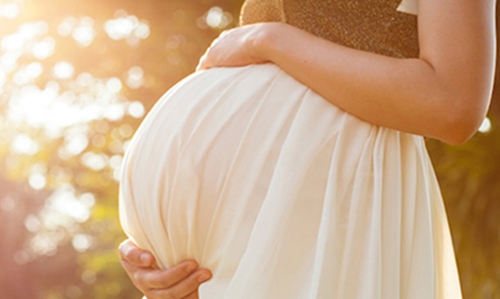Significance of Vitamin D in pregnancy
Vitamin D is a steroid vitamin from a group of fat-soluble pro hormones. Vitamin D and pregnancy are important together. Expecting mothers need to make sure they get the recommended amounts of vitamin D during pregnancy for both their own well-being and the healthy development of their baby. The most significant compounds for human development are D2 and D3.
Why you need vitamin D during pregnancy
Your body needs vitamin D to maintain proper levels of calcium and phosphorus, which help build your baby’s bones and teeth. A vitamin D deficiency during pregnancy can cause growth retardation and skeletal deformities. It may also have an impact on birth weight.
If you’re lacking vitamin D during pregnancy, your baby may be short on the vitamin at birth. This can put her at risk for rickets (which can lead to fractures and deformity), abnormal bone growth, and delayed physical development. And the results can be long lasting: Researchers believe that a vitamin D deficiency during pregnancy can affect bone development and immune function from birth through adulthood.
A deficiency of vitamin D has also been linked to a greater risk of pregnancy complications, including preeclampsia, and a higher likelihood of an expectant mom needing a c-section.
Vitamin D has been the topic of much research in recent years. Researchers are studying vitamin D’s role in preventing a number of diseases. These include certain autoimmune diseases (type 1 diabetes, multiple sclerosis, and rheumatoid arthritis), osteoarthritis, cancers (especially colon cancer), gum disease, and high blood pressure.
How much vitamin D you need
The National Academy of Sciences currently recommends that pregnant women get 200 IUs (5 micrograms) of vitamin D each day if they’re not exposed to adequate sunlight (your body makes vitamin D when exposed to the sun). Many experts believe this amount isn’t nearly enough. And the National Academy of Sciences is reviewing its guidelines on vitamin D, so they may change.
“I recommend that pregnant women take a supplement of 4,000 IU of vitamin D a day. And I recommend that lactating women take a supplement of 6,000 IU daily,” says Bruce Hollis, professor of paediatrics at the Medical University of South Carolina, who has researched vitamin D needs.
Vitamin supplements in pregnancy
Eating a healthy, varied diet in pregnancy will help you to get most of the vitamins and minerals you need. There are some vitamins and minerals that are especially important.
It’s best to get vitamins and minerals from the food you eat, but when you are pregnant you will need to take some supplements as well, to make sure you get everything you need. It’s recommended that you take:
• 10 micrograms of vitamin D each day throughout your pregnancy - you should also carry on taking this after your baby is born if you breastfeed
• 400 micrograms of folic acid each day – you should take this from before you are pregnant until you are 12 weeks pregnant
Do not take vitamin A supplements, or any supplements containing vitamin A (retinol), as too much could harm your baby.
Which foods contain vitamin D?
Very few foods have vitamin D in them. Foods with a higher amount of vitamin D include fish, liver, and egg yolk.
Excellent sources of vitamin D are foods and beverages that have vitamin D added to them. Cow milk always has added vitamin D. Orange juice, margarine, and soy beverage usually have it added. For other foods, check the label. You know vitamin D has been added if you see ‘fortified’ or ‘enriched’ on the label.
You need to take vitamin D during your pregnancy to provide your baby with enough vitamin D for the first few months of its life. You should take a supplement of 10 micrograms of vitamin D each day when you are pregnant and if you breastfeed.
In children, not having enough vitamin D can cause their bones to soften and can lead to rickets (a disease that affects bone development in children).
Vitamin D can be found naturally in oily fish (such as salmon, mackerel and sardines), eggs and meat. Some manufacturers add it to some breakfast cereals, soya products, some dairy products, powdered milk, and fat spreads such as margarine. It is difficult to get enough vitamin D from food alone.
Our bodies also make vitamin D when our skin is exposed to summer sunlight. The amount of time you need in the sun to make enough vitamin D is different for every person, and depends on things such as skin type, the time of day and the time of year. However, you don’t need to sunbathe: the amount of sun you need to make enough vitamin D is less than the amount that causes tanning or burning.
Related Posts

